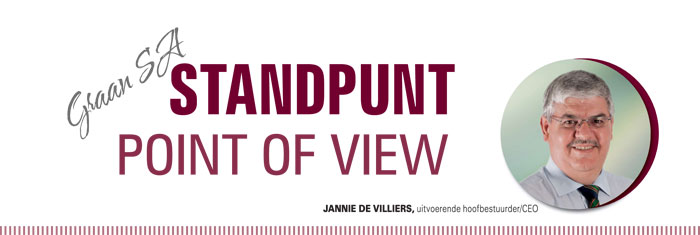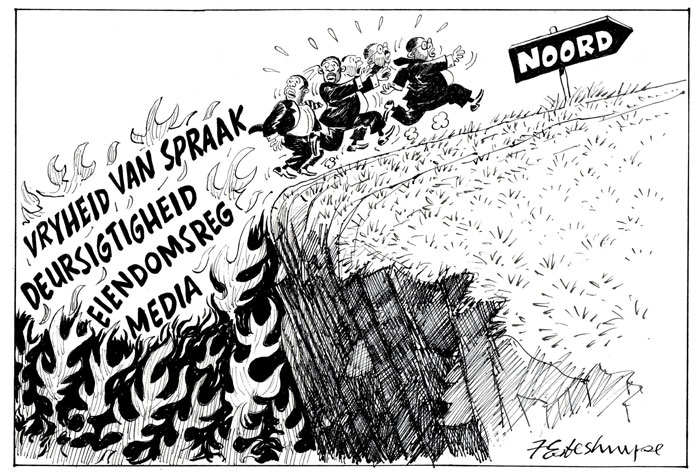September 2017

I always did and still enjoy those parts of my job related to agriculture and economy considerably more than the political part. From where I sit, I can, however, report that politics is not in a good place currently. The basic fundamental requirements for a healthy democracy are increasing the heat meter of every political chair closer to red: Freedom of speech, transparency, private property rights, a free media and perhaps even a good quota of logical distinguishing between good and bad.
And then I listen to Minister Zokwana’s reaction to the church’s commentary on corruption in Parliament and how he justifies himself by suggesting that it is not the role of the church to drive people into the arms of the opposition. It is clear that this matter hurts. People in general might still ignore the leaders of big businesses, but when church leaders (black and white) start pointing out all of government’s mistakes to the people of the country, senior politicians take note.
Yes, the role of the church is to pray for the government, but definitely also to indicate the true North when politicians lose their moral compasses. Politicians can never take that role from the church. Heat, though, has the inherent ability to change the form of everything if it remains focused in one place for long enough. That can and will change the political playing field permanently.
Whilst the producers in the south are still waiting for rain and those in the north are still harvesting, the next summer season is creeping up on us with speed. Wet maize this year definitely interfered with the hunting programmes of a number of the guys. August and September, however, are payback time and also time for considerably difficult decisions about the coming season.
I listen to how uncertain the producers are about the combination of what and how much they should plant. The broad move should be towards more yellow and less white maize and more soybeans and sunflowers instead of maize. Perhaps the change of a season is a God-given – in the sense that one’s mind does not remain dwelling on the current season and all its challenges.
Profitability in the grain industry is under great pressure all over. There is no way that we can go through another season with current price levels without big permanent changes to the composition of our farming operations. What will come about as a result of these changes is still uncertain, but the climate in South Africa and the rest of the world is certainly going to play a major role in it.
The research and technological development wheel turns slowly, but that it turns is a certainty. The question just remains whether it will be in time to prevent a massacre. I am fairly positive that it can and shall make a major contribution in the near future.
One big positive change is the developments at Agri SA. The Agri SA leadership approved new plans that will be presented to the Congress in October this year. A smaller, more flexible board of directors will be recommended and the qualifications of the new staff members are a clear indication that organised agriculture is geared to take on a number of legal issues on every terrain.
The new corporate members that have joined Agri SA are a clear message that big businesses are ready to flash their cheque books when it comes to defending matters that affect all – and not just the producers of the country. They are not concerned about voting rights, but rather about their assets and the value of their shareholders. This is really encouraging.

Publication: September 2017
Section: Relevant